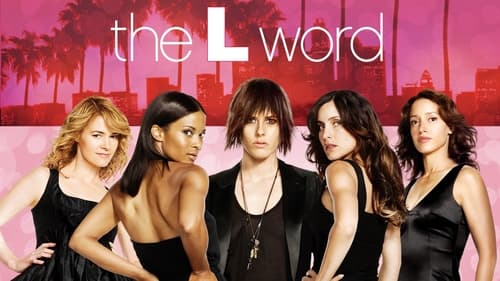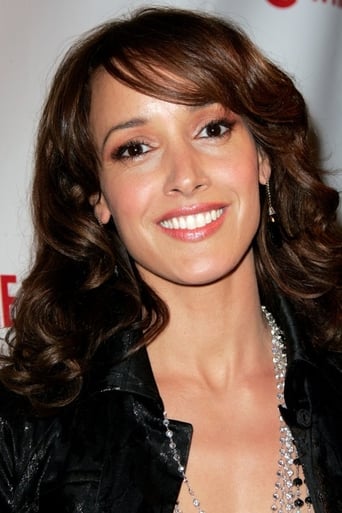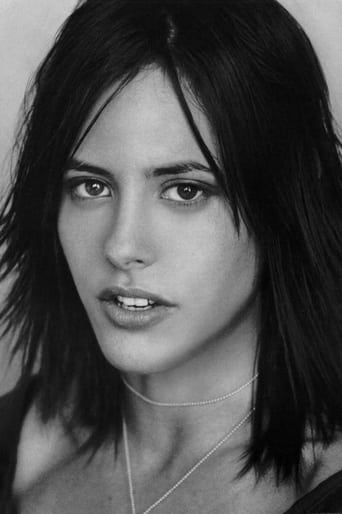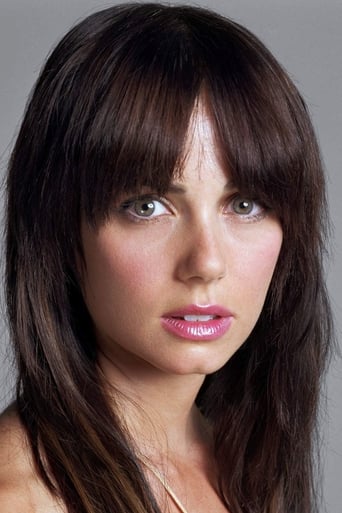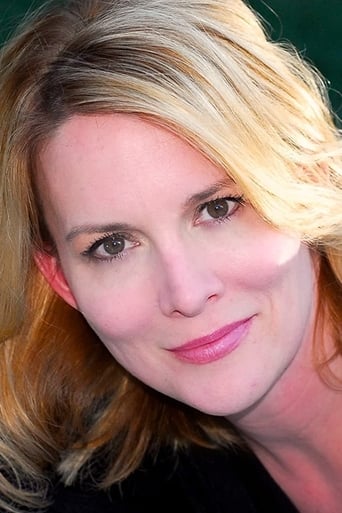AniInterview
Sorry, this movie sucks
Gurlyndrobb
While it doesn't offer any answers, it both thrills and makes you think.
Ariella Broughton
It is neither dumb nor smart enough to be fun, and spends way too much time with its boring human characters.
Mandeep Tyson
The acting in this movie is really good.
Jim Mullen Tate (TheFearmakers)
A perfectly cast ensemble of different personalities that both clash and connect with an equal balance and, like any soap operatic series it keeps the viewer interested in the characters that are all stuck in the quagmire of maze-like relationship purgatory. The only problem is how political the show can get, targeting only Right Wing Christians when the more-gay-hating Muslim faith is never mentioned...The "worst" character is also the most important, at least initially, providing the white rabbit into the wonderland of mostly... save for Pam Grier, sister of control freak Bette played by Jennifer Beals... the lesbian community. Jenny's married in the first season, and has an affair that brings her into the fray and then, by season two, she becomes the most preachy and, intentionally, pretentious, by the end basically the villain "Joan Collins" of the series, where she's bad on purpose (aided by a cute and sneaky Malaya Rivera Drew, pictured above and on the left). Alice is the smart ass: providing (albeit whiny and polarizing) not really "comic relief" but a relief of being vulnerable and funny through good (Erin Daniels as a doomed pro tennis star) and bad relationships, all posted on her website. Meanwhile, an androgynous Shane is the token player (but Shane is not butch). A Joan Jett of the Runaways era-looking grunge chick, all girls, gay or straight, are after her, and it's fun how the more "conservative" lesbians react to her wild lifestyle, which is what most people expect them all to live... giving the L WORD a glimpse not just into a lifestyle but into a group of friends that struggle with love and loss without juggling too many cliches.
romanaclay
Even if you've only read a few of the reviews or synopsis, by now you know that "The L Word" revolves around a group of mostly lesbian women, their lovers, and the occasional male who live in and around Los Angeles. I've viewed the entire series twice and while I'd love to give it 10 stars, I can't for the simple reason that there's a point where the story arc goes off the rails, the reason for which only became clear after some Internet detective work.There are a lot of terrific performances here (plus a few wooden ones from non-actor, real life gay icons who play themselves in cameo appearances), including many by actors with whom I wasn't familiar. These include Katherine Moennig (whose talents are completely wasted in the series "Ray Donovan"), Rachel Shelley, Erin Daniels, Laurel Holloman, and Leisha Hailey. Curious to see what else they had done professionally, I started looking up their IMDb profiles and noticed that in 2009 Leisha Hailey reprised her role as Alice Pieszecki in a film called "The Farm."It turns out that "The Farm" was producer and writer Ilene Chaiken's proposed sequel to "The L Word" and was set in a women's prison. The synopsis reads, "After being convicted of (murdering) Jenny Schecter, Alice is incarcerated in California's Humboldt State Farm and Prison for Women." A shocking revelation, indeed!So where did "The L Word" falter for me? It began with Season 4, Episode 5, titled "Lez Girls," which was also the title of Jenny Schecter's story about a group of mostly lesbian women, their lovers, and the occasional male. In the course of the first three and a half seasons, one of the story lines follows Jenny (played by Mia Kirshner), the naive mid-western girl from Skokie, Illinois, as she discovers her inner lesbian. The other principals, who routinely meet for coffee at The Planet, a cafe by day and lesbian bar by night, are all supportive of Jenny, but for no apparent reason, in her published work she trashes them as shallow, mean, and self-serving. Towards the end of Season 4, Jenny denounces her friends (especially Tina) with a mouthful of uncharacteristic obscenities.In Seasons 5 and 6, Jenny's behavior becomes increasingly diabolic until the climactic final episode of the series. Here the plot takes on the air of an Agatha Christie murder mystery, wherein a dozen characters each have sufficient motive to send Jenny to her untimely death.The problem is that Jenny seemly becomes the woman from Hell overnight, without any real explanation for her metamorphosis from angel to devil. Although in the earlier seasons she experienced fantasies involving her grandparents' eastern European origins, quasi-death wish dreams about being a high-wire acrobat in a circus, and so on, she was never depicted as bi-polar or predatory in her day-to-day life. By the end of Season 3, she emerged anew, embracing her power as a woman, self-confident and no longer a girl-child.In reality, Jenny's social decent was designed to be a set-up for Chaiken's post-L Word career. La Chaiken, knowing that this series would eventually come to an end, wanted to continue with another series in the Showtime galaxy. "The Farm" was going to be her ticket, but after screening a never aired pilot, Showtime declined to pick it up. As I see it, the whole Jenny as she-devil thread was a waste of film.It's too bad, because, like so many viewers, I became attached to many of the characters and was sorry to see the series end without resolution for most of them. Presumably, "The Farm" would have answered these questions through a series of flashbacks, but it was never released on DVD (I couldn't even find a pirated copy) and is apparently locked in a vault somewhere, never to be seen. We can only hope that the proposed "L Word" sequel comes through and settles some of them -- did Tina and Bette make it as a couple in New York, what happened to Max's baby, and, especially, what drove Alice to the breaking point, how she did the deed, and so on.Were it not for the Jenny debacle, I'd gladly give "The L Word" 9 or 10 stars. Yes, some of the plot twists are silly and defy logic, but that's what drives series like this one. However, if you're looking for insight into the breath of lesbian behavior and social-sexual practices, this is a good place to begin. Though, you could just as soon call it a wrap at the end of Season 4 and devote some of the 20 hours you'd save to watching "Tales of the City" (but Season 1 only).
evelina_lina-74452
An entertaining depiction of the lesbian world in LA. What I like the most is how, for moster of the time, real the show feels. It doesnt have that studio feeling to it that many series have. Sometimes the humour can be a bit too unrealistic but I can live with that. I like that there is a show about lesbians, I think its important.
someofusarebrave
was in love with this show when it first came out; all of us were. We were so desperate for a lesbian-centered television show back then. Any television show that even began to touch on the issues pertinent to our lives seemed well worth the investment of our time and affections.I know better now.I can see the way that Shane's abused, traumatized self masks her pain via her many addictions, and I can recognize that this show glamorizes the drug and alcohol co-dependencies which prevent her from being happy.I can see Jenny's self-centeredness, and I can recognize the spoiled-little-rich-girl background of a woman able to live on the money she makes waitressing! yet still have the time and money to attend a rather prestigious writing class...who cheats on her longtime fiancée with a woman she knows next-to-nothing about...who attempts to kill herself because she was molested once fifteen years prior, and was recently broken up with.I can see that Carmen's desperate desire to win Shane's love via her stick-to-itiveness is kinda pathetic, and that her willingness to be involved with even a fractured, barely-functional Shane rather than demand Shane heal into someone worthy of Carmen's time leads directly to the events of the season three finale.I can see that Alice is pathetically obsessed with tracing connections between other people because she feels so disconnected herself.I can recognize her involvement with her best friend, Dana, is an attempt to become more connected to the world at large and particularly to her other "best friends" so as not to be left in the dark by herself.I can see that she perhaps should be, as her "bisexuality" is actually the result of the fact that she is at heart still a toddler, stumbling around after anybody who might take the place of Mommy or Daddy while they are gone, willing to do whatever she has to do to feel loved.I can see that Dana is determined NOT to be loved and so she deliberately sabotages every romantic relationship she ever enters into.I can see that Tina is stupid to the point of utter incompetency at life, that she goes back to Bette again and again because she feels she does not deserve better, and because it seems easier than finding someone else to be that "better." I can see that she is depressed to Bette's bipolar, and thus they make the perfect mutually unhealthy team.I can see Bette's utter incapacity to love anyone nearly as much as she loves herself, let alone respect them...and that Tina is far better off without her. I can see her as the self-centered, coddled child-woman that she is, that she is the kind of woman whose friends make sure never to directly confront about anything for fear of being screamed at. I can see that she does not temper her rage for anybody.I can see how misplaced that rage is--indeed, it is as misplaced as her sister Kit's struggles to be accepted, approved of and desired are.I can see how everybody on this show looks for love in all the wrong places, and that what they find thus is not love but simply indulgence.I can see that this indulgence benefits no one, and never would.I can see that they obsess over romantic relationships because the rest of their lives are so entirely empty of passion and of satisfying intellectual pursuits and athletics.They do not really care about anything save themselves and one another.In spite of the attempts this show makes at throwing gender and particularly feminine stereotypes into harsh relief, as much as the show makes claims to be doing this in order to criticize them, it fails.These women are entirely feminine creatures, whose lives focus around gossip, relationships or lack thereof, and making and earning money.They do not understand themselves at all, nor do they seem in a hurry to do so. They act insanely carefree in order to cover up what they are truly feeling...and thus, they depart from the women whom I know who are lesbians, and from the reason I admire them so much.The women I know who are lesbians express themselves without fear. We know what our feelings are and we speak up on their behalf.We do not cover up our feelings in the name of having a "good time."That's something straight girls do.Meanwhile, there's the whole 'sex' issue. Mark's character in season two actually brings this up in a really interesting way in season two.However, the creators and writers of the show never appear to actually listen to themselves. Mark is filming these women having sex without telling them what he is doing. Meanwhile, the actresses are featured on this show in all kinda undress for no apparent reason other than the audience's titillation. I mean, yes, many "straight" shows include straight sex scenes...can't think of any right now that are nearly as explicit as the scenes on this show are, but I'm sure I will in a second. Nope, still nothing. There is no really great reason I can think of to be revealing the naked bodies of your actresses on a regular basis, or be showing intimate and fully-naked full-on sex scenes on this show. Just, none at all. Besides, how do these horny boys differ from horny Mark on the show?Jenny finally ranted at him, which he deserved--but she cannot unfortunately do the same for every horny and misguided boy viewer.Thus they walk away believing their "interest" in lesbians is okay.As you might imagine, I severely disagree.Actresses, y'all are my heroines.
